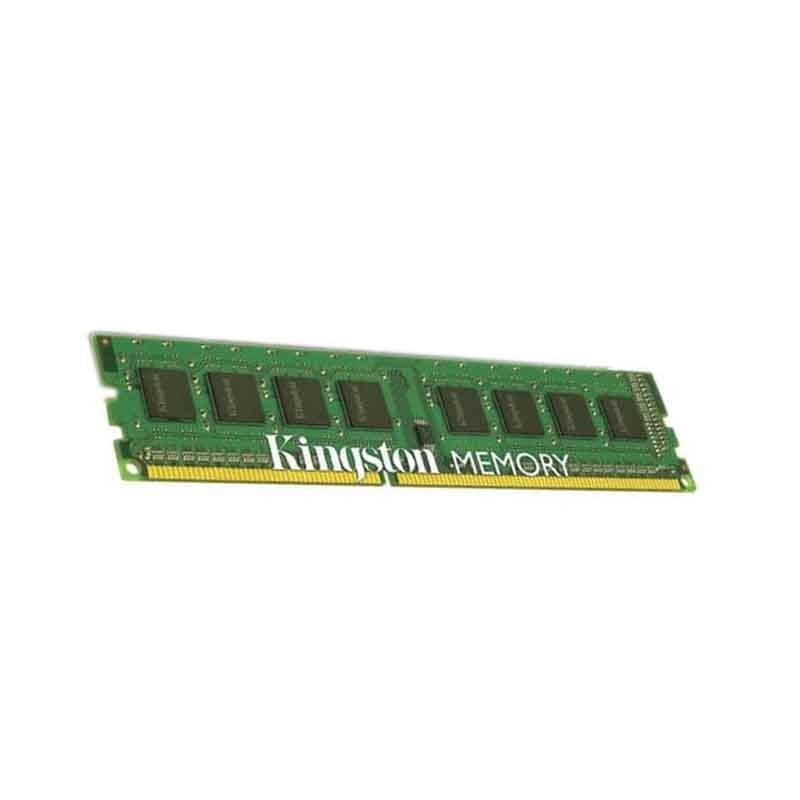Description
Understanding DDR3 Memory Technology
DDR3 (Double Data Rate 3) is a type of computer memory technology that was introduced in 2007 as an upgrade to DDR2 memory. DDR3 memory is faster and more power-efficient than DDR2 memory, making it an ideal choice for modern computing applications.
DDR3 memory uses a 240-pin connector and operates at a voltage of 1.5 volts, which is lower than the 1.8 volts used by DDR2 memory. This lower voltage not only reduces power consumption but also generates less heat, which helps to improve system stability and reliability.
One of the key features of DDR3 memory is its higher memory bandwidth. DDR3 memory modules can transfer data at a rate of up to 10.6 GB/s, which is almost double the maximum data transfer rate of DDR2 memory. This higher memory bandwidth allows for faster and more efficient data processing, which can result in improved system performance.
DDR3 memory also has a higher memory density than DDR2 memory, which means that it can store more data in the same amount of physical space. This increased memory density allows for larger amounts of memory to be installed in a single system, which is important for memory-intensive applications such as video editing and 3D rendering.
Benefits of ECC SDRAM Reg RAM
ECC (Error-Correcting Code) SDRAM Reg (Registered) RAM is a type of computer memory technology that provides several benefits over non-ECC memory modules. Some of the key benefits of ECC SDRAM Reg RAM are:
- Error Correction: ECC SDRAM Reg RAM includes extra bits of data that allow for the detection and correction of errors that may occur during the memory read/write process. This helps to ensure data accuracy and prevents system crashes and data corruption.
- Improved System Stability: The use of registered memory in ECC SDRAM Reg RAM helps to reduce the electrical load on the memory controller, which improves system stability and reduces the chance of memory errors.
- Higher Memory Capacity: ECC SDRAM Reg RAM can support higher memory capacities than non-ECC memory modules, which is important for memory-intensive applications that require large amounts of memory.
- Better Performance: The use of registered memory in ECC SDRAM Reg RAM also improves memory access times and helps to reduce memory bus loading, which can lead to better overall system performance.
- Enhanced Reliability: ECC SDRAM Reg RAM is designed to be more reliable than non-ECC memory modules, as it is able to detect and correct errors that may occur during the memory read/write process. This can help to ensure that critical data is not lost due to memory errors.
Performance and Speed Tests
Performance and speed tests are used to evaluate the performance and speed of computer memory modules such as the 4WYKP Dell 8GB DDR3 ECC SDRAM Reg RAM. These tests help to determine the memory module’s capability to handle large data sets, run multiple applications simultaneously, and overall system performance.
There are several performance and speed tests that can be used to evaluate DDR3 memory modules, including:
- Memory Bandwidth Test: This test measures the maximum amount of data that can be transferred between the memory module and the CPU in a given time period. A higher memory bandwidth indicates better memory performance.
- Memory Latency Test: This test measures the time it takes for the memory module to respond to a memory request from the CPU. Lower latency indicates better memory performance.
- Memory Stress Test: This test puts the memory module under a high-stress load to determine its stability and reliability under extreme conditions.
- Application Load Test: This test measures the time it takes to load and run multiple applications simultaneously, which can help to determine the memory module’s ability to handle multiple tasks at once.
- Gaming Performance Test: This test measures the performance of the memory module in gaming applications, which can help to determine its ability to handle complex 3D graphics and high-speed data transfer.
The results of these tests can be compared to benchmark results to determine the relative performance and speed of the 4WYKP Dell 8GB DDR3 ECC SDRAM Reg RAM compared to other memory modules. Overall, performance and speed tests are an important tool for evaluating the performance and reliability of computer memory modules, which is crucial for ensuring optimal system performance and stability.
General information
- Manufacturer: Dell
- Manufacturer part number: 4WYKP
- Type: Memory (RAM)
- Sub-Type: PC3-8500
- Product name: 8gb ddr3 sdram memory module
Technical Information
- Storage capacity: 8gb
- Memory technology: ddr3 sdram
- Number of modules: 1x 8gb
- Memory speed: 1333mhz ddr3-1333/pc3-10600
- Data integrity check: ecc chipkill
- Signal processing: registered
- Cas latency timings: cl9
- Ram features: fully buffered
- Physical characteristics:
- Form factor: 240-pin dimm












